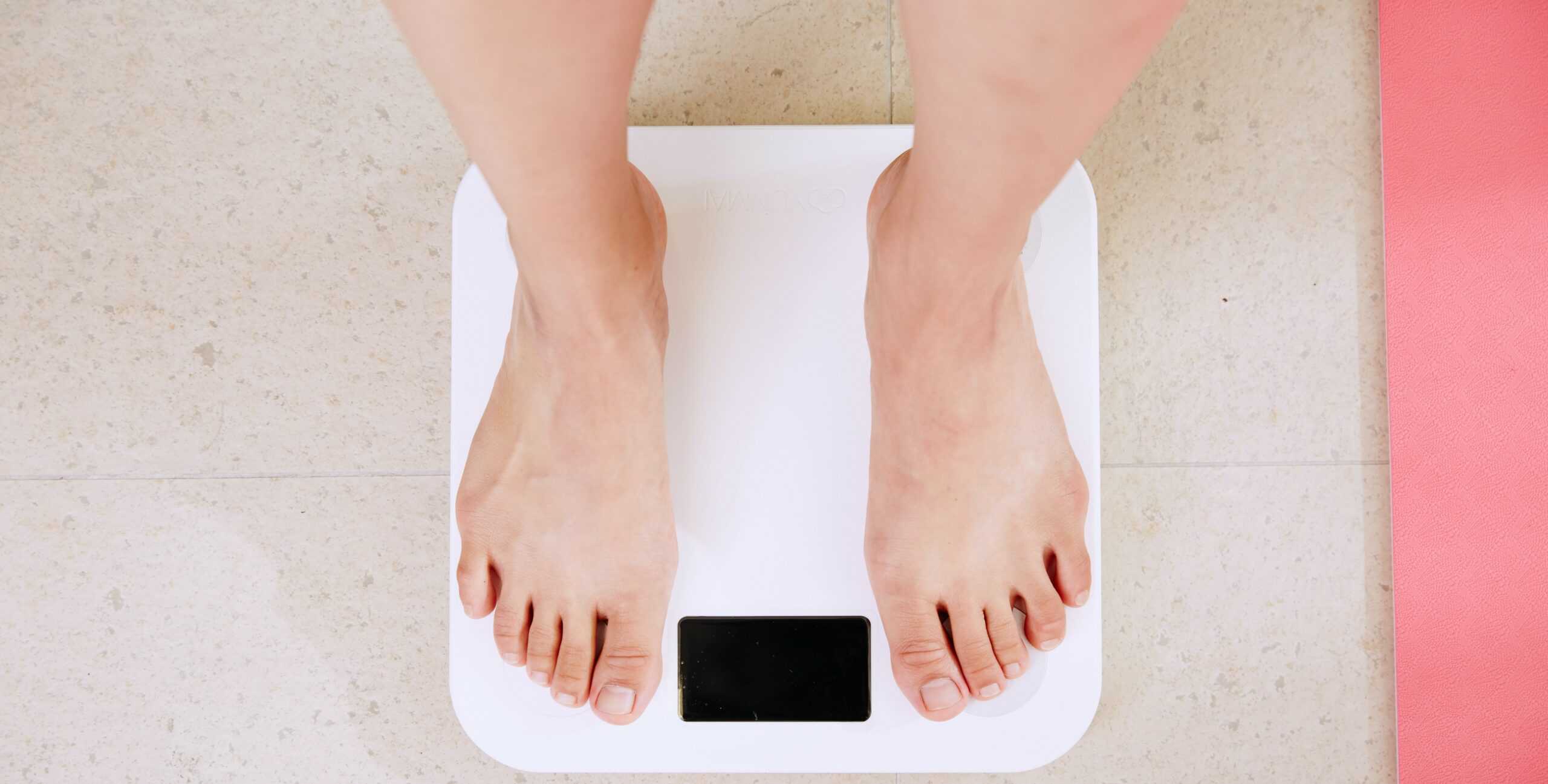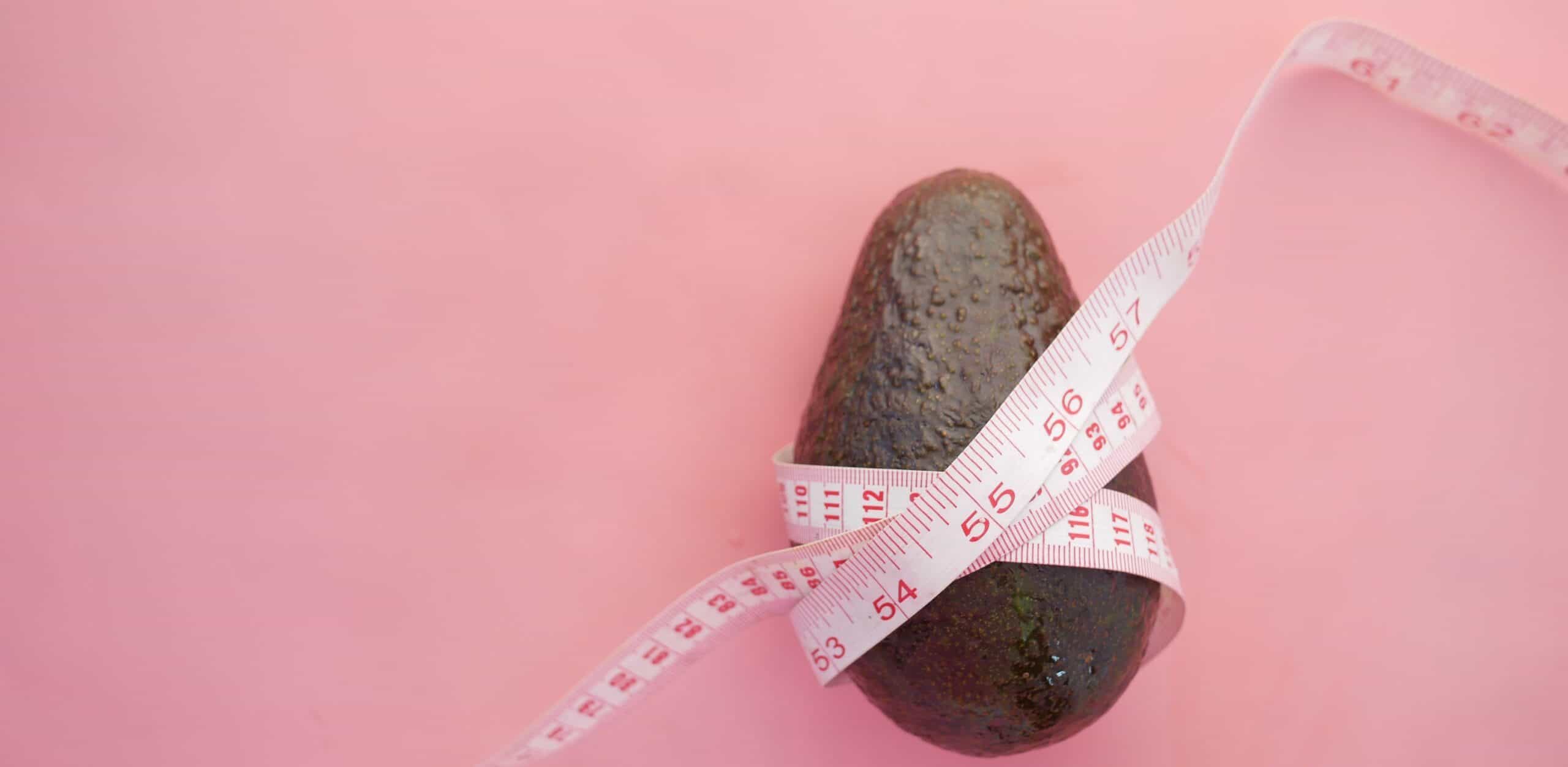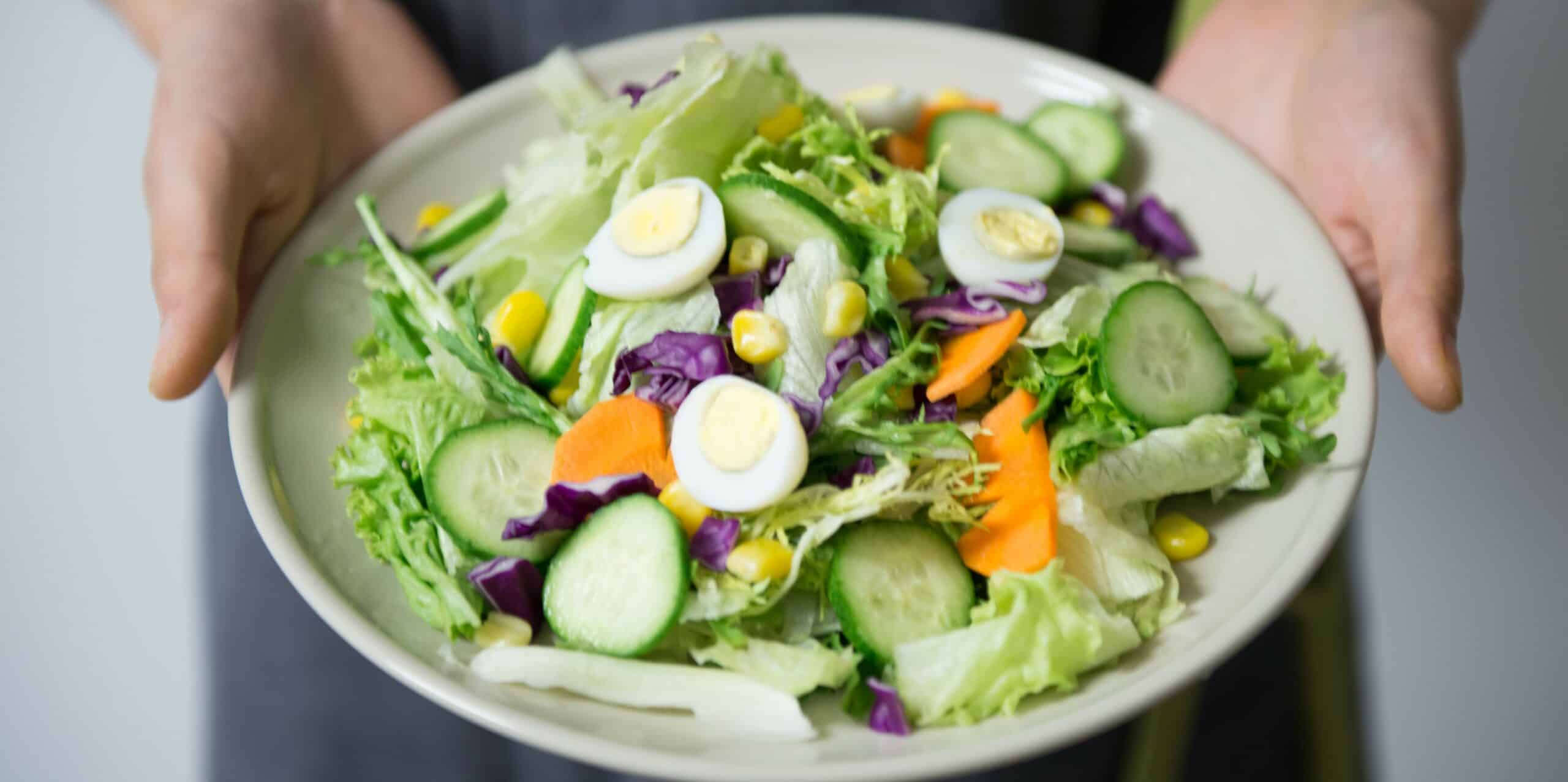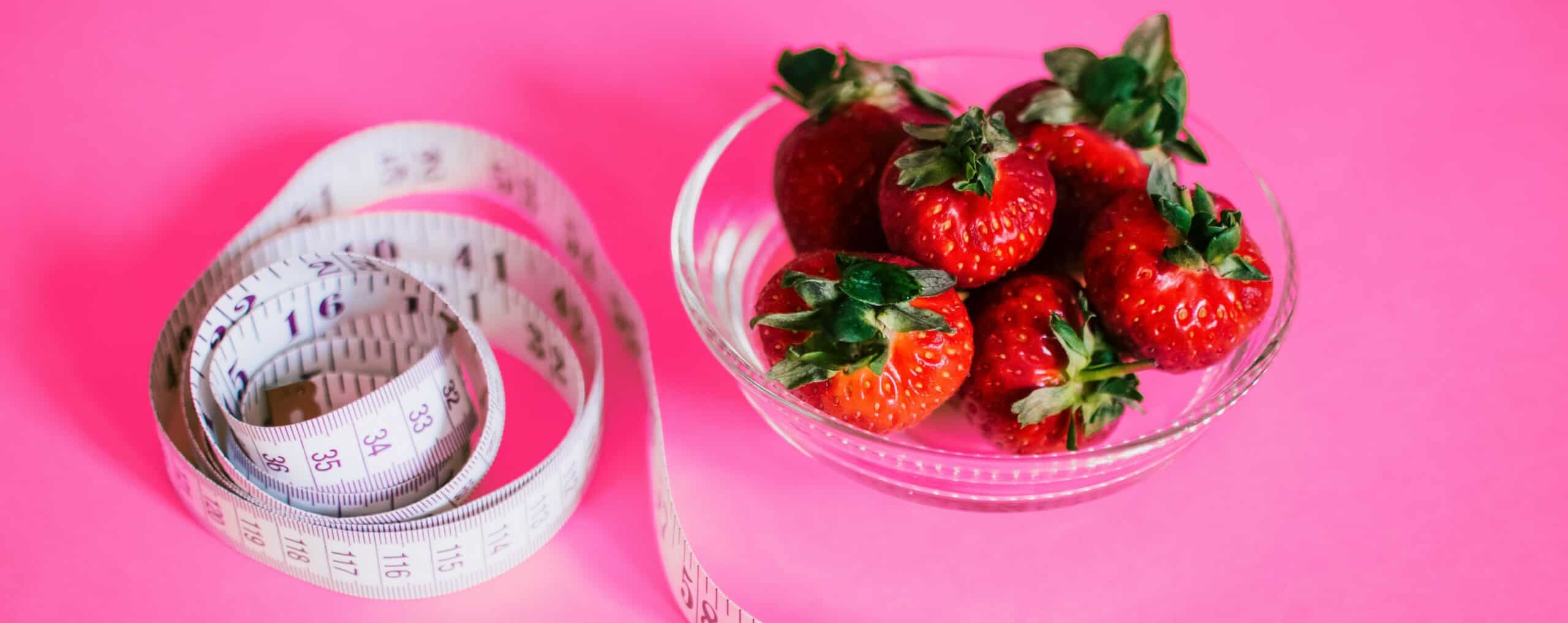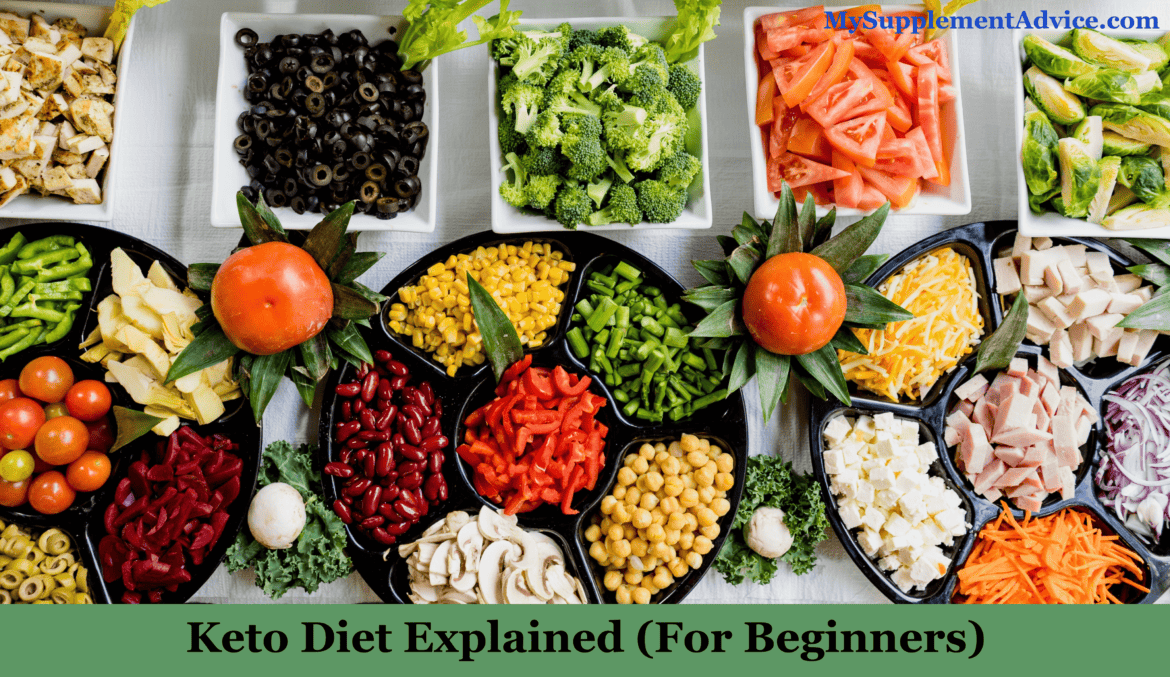
Here is the Keto diet explained (for beginners).
Everyone is talking about this diet, so I'm sure you've heard of it.
However, there are many aspects to consider when looking into this diet:
- What are the guidelines?
- How many rules are there?
- What about any requirements?
Well, let's go through every question and see how good this diet really is.
Note: This article is based on my research on Keto diet.
Keto Diet Explained (In A Nutshell)
Keto Diet is all about consuming as little carbs as possible.
Through this, it helps your body convert fat stores into fuel instead of glucose:
- good for weight loss
- based on moderate intake of protein
- highly restrictive
- may lead to nutrient deficiency
- unsuitable for people who are not otherwise healthy
Still – don't be quick to jump on the train just because Keto can lead to quick weight loss.
You should know that this diet is very challenging to stick to.
After all, most people normally tend to consume lots of carbs in their everyday diet.
Naturally, giving them up all of a sudden might come as a shock to your body.
Of course, you may not have to count calories or anything like that…
But you will have to let go of a good chunk of your current meals.
Here are the foods you are supposed to avoid on Keto:
- grains or starches (pasta, rice, wheat-based products)
- all fruit (except for small portions of berries)
- sugary foods (soda, smoothies, cake, etc.)
- beans & legumes
- unhealthy fats (processed vegetable oils, mayonnaise, etc.)
- alcohol
- sugar-free diet foods
These are more than a little difficult to let go of.
Not to mention that you need a lot of self-discipline in order to keep this up.
Besides, it can lead to a few health risks as well.
One such issue would be nutrient deficiency, given that Keto eliminates a good part of your diet.
However, you should keep in mind that this diet is not safe if you have certain illnesses.
For example, you should steer clear of Keto if you have a history of heart disease…
Or if your blood sugar is causing you problems.
That being said, there are more drawbacks to Keto than you might think.
Overall, I would recommend looking for a safer & more sustainable alternative.
#1 – What is Keto Diet all About?
Among diets, this is perhaps one of the most well-known ones.
Well, that's probably because it claims to help you lose weight while also improving your health [1].
So, what about Keto is so widely appealing?
Well, the basis of this diet is that you are making your body burn fat for energy.
In time, you supposedly get to a point where fat is no longer stored.
Thus, you should no longer gain weight, allegedly.
In essence, you are supposed to consume low amounts of carbohydrates.
Simultaneously, try to consume as much fat as possible.
This will help your body burn fat for energy.
A dietary shift such as this one should trigger many positive changes in your body.
Research even suggests that Keto diet has benefits against an array of diseases:
As you can see, it's proven to help in more than one way.
Naturally, this gives rise to its popularity.
But let's get more specific here – how does this diet accomplish all its claims?
Let's analyze this in the following section.
#2 – How Keto Diet Works
In short, this is a low-carb, high-fat diet that is quite similar to other diets of the same type.
As I previously mentioned, you're looking to limit carbs and consume as much fat as possible.
Reducing carbs will put your body in a metabolic state known as ketosis.
This is basically the keyword when it comes to this diet.
That's because it's the very process that ensures you reach the results you are after.
Ketosis means that your body becomes very efficient at burning fat for energy.
At the same time, the liver also turns fat into ketones, which the brain uses as a source of energy [4].
If the body gets used to depleting fat, it no longer gets to add to your weight.
If you're looking to get into Keto, please keep in mind that there are multiple variations of it:
- Standard Ketogenic Diet (SKD) – low carb, moderate protein, and high fat.
- Cyclical Ketogenic Diet (CKD) – switching between keto and high carb (e.g. 5 keto days, 2 high carb days).
- Targeted Ketogenic Diet (TKD) – adding carbs around workouts.
- High Protein Ketogenic Diet – similar to a basic keto diet, but with more protein.
Part of what makes Keto so attractive is that it eliminates a significant part of our diet.
The average person consumes lots of carbs on a daily basis.
In fact, I'm sure you must be a fan of pasta, bread, and potatoes, for example.
They are incorporated in lots of meals, which therefore fill us with carbs.
These later get broken down into glucose which is used as energy.
Naturally, this leaves fat to slowly build up in your body, causing you to gain weight.
As such, this is why Keto diet is so promising to lots of people.
#3 – Keto Diet & Research
When it comes to research, lots of articles talk about whether Keto is healthy or not.
Given the fact that its main course of action is to restrict carbs…
There is a debate as to whether something like this is truly safe:
- they lead to weight gain and high blood sugar [5]
- but our bodies use them for energy
- in moderation, they are not dangerous
Still, it is true that you should be mindful of what types of carbs you are eating.
For instance, fiber and starches are complex carbs that take longer to break down [6].
Actually, fiber is not broken down – instead, it aids in digestion and balances your blood sugar levels.
As for sugar, which is a simple carb, it is assimilated quickly.
That is why you might experience rises and falls in blood sugar.
This proves that carbs have their own use in our bodies.
So – what exactly does the research say to make Keto seem viable?
Well, it supports the idea that Keto can lead to weight loss and prevent cardiovascular issues.
Additionally, the amount of fat and protein can make it easier to manage your appetite.
You may know that low-carb, low-fat diets are difficult to stick to precisely because you rarely feel satiated.
Well, Keto does not have this problem.
#4 – Keto Diet – Benefits
Let's discuss specifically what Keto offers in terms of positive effects.
Weight loss is obviously a given.
But are there any other benefits that might interest you?
1. Weight Loss
As it would seem, this diet is suitable for losing weight without the added risk of potential diseases.
Some studies even suggest that it's on the same level as low-fat diets in terms of efficacy [7].
Actually, a study suggests that people who followed Keto lost an average of 2 pounds more than those on a low-fat diet [8].
Regardless of how much weight you want to lose, it is considered that Keto is one of the best choices out there:
- changes how your body works, in a way
- lowers the risk of obesity-related health issues
- is satiating enough (you won't feel like starving)
On top of that, your body does all the work thanks to the process of ketosis (remember?).
Of course, you are also encouraged to engage in some physical activity.
Working out is always a good idea to enhance the effects of a diet.
Besides, have I mentioned that there is no calorie counting involved?
2. Reduced Appetite
This is a perk that I also mentioned before, but let's look into it a bit more.
Sure, Keto is based on the fact that fats are more satiating than other types of nutrients.
Let's see how this checks out:
- carbohydrates have 4 calories per gram
- protein has 4 calories per gram
- fat has 9 calories per gram
As you can see, one gram of fat contains the same amount of energy as protein and carbs combined.
This is precisely what makes Keto a high-fat diet.
By keeping you full for longer, your appetite is curbed and you won't feel the need to overeat.
After all, overeating is a risk that so many diets pose due to leaving you wanting to eat more.
Well, Keto does not pose that risk.
3. Improves PCOS Symptoms
This might be somewhat unexpected, but a few studies suggest that Keto can be quite useful in this scenario.
Women who suffer from polycystic ovary syndrome may want to avoid diets high in carbs.
Carbohydrates can cause side effects such as skin issues and weight gain.
On this note, a study from 2005 followed the journey of 5 women suffering from PCOS and how they responded to Keto [9].
The experts concluded that keto helped them with the following:
- balancing the hormones
- weight loss
- ratios of luteinizing hormone (LH) and follicle-stimulating hormone (FSH)
While these benefits are uplifting, Keto cannot be recommended as a treatment for PCOS.
That's because dealing with hormonal disorders is always tricky.
#5 – Keto Diet – Downsides
As popular as this diet is, it is also infamous for its many health risks.
Let's go over some of them so that you know what to expect.
You should definitely take these into consideration before deciding to go Keto.
1. Keto Flu
As previously mentioned, this diet cuts down on carbs quite dramatically.
If you suddenly adopt a diet such as this one, it's likely that your body will need time to adjust [10].
Obviously, going from consuming carbs for energy to a high-fat diet is quite the change.
As your body is getting used to this, you might experience flu-like symptoms.
This is known as the “Keto flu”.
Here are some side effects you should watch out for:
- fatigue
- nausea
- constipation
- dizziness
- headaches
Generally, people who start this diet may experience this Keto flu for a couple of weeks.
During this time, it's essential to drink lots of water and consume foods rich in potassium and sodium [11].
Other than that, make sure to closely monitor your symptoms.
If anything feels unusually bothersome, you should probably cease the diet and consult a doctor.
2. Higher Risk of Kidney Stones
Yet another risk that comes with converting to a high-fat diet.
In essence, consuming a lot of animal foods causes your urine and blood to become more acidic.
This, in turn, means that your urine will contain more calcium [12].
Also, Keto diet also affects the level of citrate in your body.
This is important because citrate binds to calcium and prevents the formation of kidney stones.
As such, if the level of citrate drops, you are more likely to develop kidney issues later down the line [13].
In fact, anyone who already has health problems related to kidneys might be better off staying away from Keto.
If you suffer from chronic kidney disease, you should lean towards lower protein diets [14].
Given that Keto is so hyper-focused on fat, it's not the most suitable choice.
3. Potential Digestive Issues
It's no secret that Keto is rather restrictive in terms of what you are and are not allowed to eat.
As a result, you may not be able to eat as much fiber as your digestive health may warrant.
In general, the best sources of fiber are banned while on Keto because they are high in carbs.
Not consuming enough fiber raises the risk of:
- indigestion
- constipation [15]
This is important because fiber is what feeds the healthy bacteria in your gut.
Without it, you may find that your immunity is shaken, and you are more prone to inflammation [16].
Still, there are some ways to ensure fiber intake even on Keto.
For instance: chia seeds, coconut, broccoli, cauliflower, and leafy greens.
However, keep in mind that Keto diet is not the friendliest option if you're already struggling with gut health.
4. Lowers Blood Sugar to Dangerous Levels
People with diabetes are usually encouraged to give Keto a try.
That's because research shows that this regimen has a high chance of lowering blood sugar [17].
But keep in mind that this is not safe for all types of diabetes.
For example, for type 1 diabetes this would be quite dangerous given that you are more likely to experience hypoglycemia.
Here are a couple of symptoms worth paying attention to:
- shakiness
- fatigue
- confusion
- sweating
On top of this, hypoglycemia can lead to coma and even death if left untreated.
It is also recommended to consume foods high in carbs if you have type 1 diabetes.
In theory, individuals with type 2 diabetes may also experience dangerously low blood sugar while on Keto.
Admittedly, the risk is not as high.
Overall, it's best to seek the advice of a specialist if you are considering Keto and are diabetic.
#6 – Keto Diet – Rules & Requirements
At first sight, Keto diet may seem quite complicated because there is a lot to keep in mind.
It's also a rather strict diet, so it makes sense to feel overwhelmed at first.
For this reason, I thought putting down the general rules & requirements of this diet would be helpful.
1. Rules
Keto diet is complex and imposes many rules on your dietary regimen.
But let's go over the most essential aspects you should remember.
Going over this list should give you an idea of whether this diet is for you.
Let's see that Keto has in stock for you:
- Get used to eating lots of healthy fats.
- Protein should be consumed in moderation.
- You should not eat more than 50 grams of carbs per day.
- Non-starchy veggies are your best friends.
- Intermittent fasting can enhance the state of ketosis.
- Prepare to deal with (and get rid of) the Keto flu.
- Always plan your meals ahead to avoid snacking and cravings.
Following these rules should help you fare better in your Keto journey.
Obviously, there is no denying that such a strict diet will be quite challenging.
However, having self-discipline and reminding yourself of your goals should ease the burden.
Remember that this is a diet that is not very tolerant in terms of slip-ups.
This is to say that the state of ketosis can be affected if you eat something you're not supposed to.
2. Requirements
Let's get to another important aspect – is Keto for everyone?
Well, given how restrictive it is, certainly not!
So how do you know you're free to give this diet a shot?
In truth, you have to be quite healthy for Keto to not pose any threats to your overall well-being.
For example, if you have a history of heart disease or struggle with blood sugar (especially type 1 diabetes)…
You're better off staying away from this diet.
Similarly, you should not try Keto if you have issues with the following:
- liver
- pancreas
- thyroid
- gallbladder
Not to mention that this is certainly not safe for people with eating disorders.
On top of that, it's also not suitable for women who are pregnant or breastfeeding.
Basically, your only concern should be weight loss and nothing else.
If your health is less than ideal in any of these departments, there is a chance that Keto will make everything worse.
As such, you should tread carefully if you are thinking of going Keto.
#7 – What You Can Eat On Keto Diet
The rules that come with Keto restrict your diet quite a bit.
So what are you left with? What should you eat?
Allow me to give you a list of all the foods you are free to eat on this diet.
Just base your meals on the following list and you should be safe:
- unprocessed cheeses
- nuts & seeds
- red meat
- fatty fish (tuna, trout, mackerel)
- eggs
- avocados
- low carb veggies (tomatoes, onions, peppers, etc.)
- grass-fed butter & heavy cream
As you can see, you have free reign to foods such as meat, eggs, and low-carb veggies.
That should be enough to keep you satiated through numerous meals.
Still, you might find it difficult to stick to such a restrictive regimen.
Make sure to weigh out the pros and cons before committing.
#8 – Foods To Eliminate On Keto Diet
We've seen that Keto is all about limiting carbs.
But what exactly are you supposed to leave out of your diet?
I thought you would also like a list of foods to steer clear of.
Perhaps this will simplify Keto for you:
- grains or starches (pasta, rice, wheat-based products)
- all fruit (except for small portions of berries)
- sugary foods (soda, smoothies, cake, etc.)
- beans & legumes
- unhealthy fats (processed vegetable oils, mayonnaise, etc.)
- alcohol
- sugar-free diet foods
As you can see, you have to let go of quite a few delicious foods.
Not to mention that these are often the cause of cravings.
So you have to be very disciplined in order to make this work.
Remember that Keto is not very forgiving as far as slip-ups go.
#9 – Keto Diet & Weight Loss
Let's sum up what Keto can do for you in terms of weight loss, shall we?
Research suggests that it's definitely a viable solution for shedding extra pounds [1].
Given that it gets your body from using glucose as fuel to instead using the fat stores…
It surely seems promising enough.
When starting out, it will take about 3-4 days to deplete the amount of stored glucose in your liver.
After that, you should start producing ketone from fat [18].
Once enough ketone can be found in your blood, you will enter ketosis.
If you follow the diet carefully, this state should not pose problems to your health.
However, make sure you closely monitor your health regardless.
If anything happens out of nowhere, maybe it's a sign that your body is struggling with this change.
Regardless, you don't have to deal with calorie counting on this diet.
At least it claims to deliver results in a way that is not very cumbersome.
My Verdict – Is Keto Diet Worth It?
Short answer: No – it's not sustainable long-term.
While Keto diet might sound tempting, there are significant risks:
- great weight loss potential
- very restrictive regimen
- high chance of causing nutrient deficiency
- very difficult to stick to
- having to deal with Keto flu
- not suitable for people with heart conditions or unbalanced blood sugar
Sure, if you're looking to lose weight, Keto may seem like a very attractive option.
After all, you don't have to count calories or even insist much on physical activity.
Due to ketosis, your body will just burn fat on its own.
However, this happens at the cost of multiple health risks.
That being said, you should only give Keto a chance if you are a healthy person…
And your only concern is to lose weight.
Otherwise, this diet could complicate whatever health concerns you may be dealing with…
References:
1 – https://www.ncbi.nlm.nih.gov/pmc/articles/-PMC3945587/
2 – https://pubmed.ncbi.nlm.nih.gov/-30289048/
3 – https://www.ncbi.nlm.nih.gov/pmc/articles/-PMC5842847/
4 – https://www.ncbi.nlm.nih.gov/books/-NBK499830/
5 – https://www.hsph.harvard.edu/carbohydrates-and-blood-sugar/
6 – https://www.tandfonline.com/doi/-10408398.2017.1392287
7 – https://pubmed.ncbi.nlm.nih.gov/-23651522/
8 – https://pubmed.ncbi.nlm.nih.gov/-23651522/
9 – https://www.ncbi.nlm.nih.gov/pmc/-PMC1334192/
10 – https://www.ncbi.nlm.nih.gov/pmc/-PMC3826507/
11 – https://www.ncbi.nlm.nih.gov/pmc/-PMC6251269/
12 – https://www.ncbi.nlm.nih.gov/pmc/-PMC2852806/
13 – https://www.ncbi.nlm.nih.gov/pmc/-PMC2852806/
14 – https://bmcnephrol.biomedcentral.com/-10.1186/s12882-016-0283-x
15 – https://www.ncbi.nlm.nih.gov/pubmed/-25649120
16 – https://www.ncbi.nlm.nih.gov/pmc/-PMC6678592/


